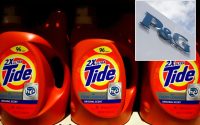NextMed posted fake before-and-after Ozempic results: report
A tech startup posted fake before-and-after photos of people who were said to have slimmed down using the antidiabetic drug Ozempic despite the fact that federal regulators never approved marketing the medication as a weight loss pill, according to a report.
NextMed, a telehealth startup owned by Helio Logistics Inc, deleted the fake testimonials from its web site after receiving inquiries from The Wall Street Journal.
It also stopped running television ads just a few days after the Journal sought information as to whether the people featured in the commercials were actual patients.
One ad featured side-by-side images of someone named “Laura” who claimed to have dropped 71 pounds.
“Over the past 20 years, I’ve spent a lot of time being fat,” the ad quoted “Laura” as saying.
“It’s terrible, and hurt my confidence, love life, and career.”



“With Next Medical I’ve been able to take my life back,” the ad continued.
“Their GLP medication really works.”
The Journal discovered that “Laura” was actually a woman named Tammy Ratcliffe, a woman who was featured in a 2018 web story posted by Hartford HealthCare.
Ratcliffe underwent gastric bypass surgery. Initially weighing in at 240 pounds, she managed to reduce her weight by half thanks to the procedure.
NextMed also used another fake ad — this one which touted the story of “Rick,” who managed to shed nearly 100 pounds.

“It’s not that hard getting started,” the fake ad quotes “Rick” as saying.
“I waited a long time, but finally took the leap with Next Med.”
“Rick” then added: “I am down over 90 pounds and have more stamina than guys half my age. Incredible journey.”
But the Journal found that “Rick” is actually Jack Boyce, whose real-life weight loss success story was posted on the website of AFS Premier, the Texas-based diet and exercise consultancy firm.
The Post has sought comment from NextMed.
NextMed is a tech company that touts itself as one that “offers the only truly doctor and provider led weight-loss program” by “bund[ling] prescription GLP-1 medication, insurance support, monthly medical consultations, and repeat lab-testing…”

“GLP-1” stands for glucagon-like peptide 1, a class of type 2 diabetes drugs whose popularity has skyrocketed in recent months due to its purported weight loss benefits.
Aside from Ozempic, NextMed offers its clients monthly subscription plans ranging from $99 per month to $149 per month.
As part of the plan, customers are offered a choice from a range of GLP-1 drugs, including Mounjaro, Saxenda, Rybelsus, Trulicity, Victoza, and Wegovy.
NextMed claims that it uses a software that enables it to quickly process insurance authorization requests for the medication.

Clients are promised that they will lose 10% of their body weight within the first year and that they will shed the pounds without any “restrictive diet or intense exercise.”
According to the Journal, NextMed has capitalized on the surging popularity of Ozempic and other drugs.
Adam Greene, an attorney for NextMed, told the Journal that NextMed generated less than $10 million in revenue in 2022.
A fundraising presentation reviewed by the Journal indicated that the company’s revenue soared to an average annual rate of $55 million at the beginning of the year — up from $1.5 million in July.
Health experts consulted by the Journal said that promoting the drugs for weight loss to people who are not obese could lead to health issues including eating disorders and body dysmorphia.
The experts also faulted NextMed for not informing clients about potential side effects of the medications that they were marketing, according to the Journal.
Ozempic, Wegovy, and Rybelsus are the brand names for semaglutide, whose adverse affects include nausea, vomiting, diarrhea, abdominal pain, and constipation, according to scientific journals.


